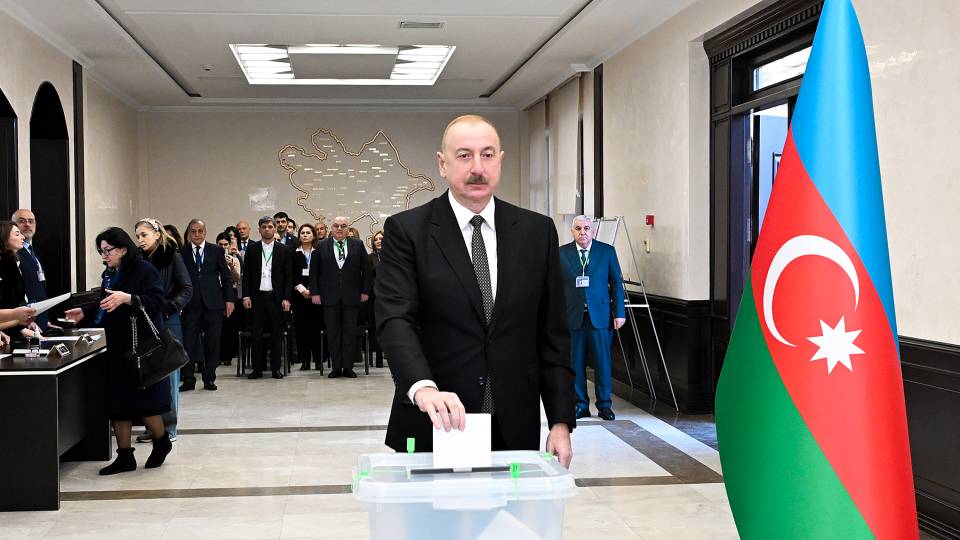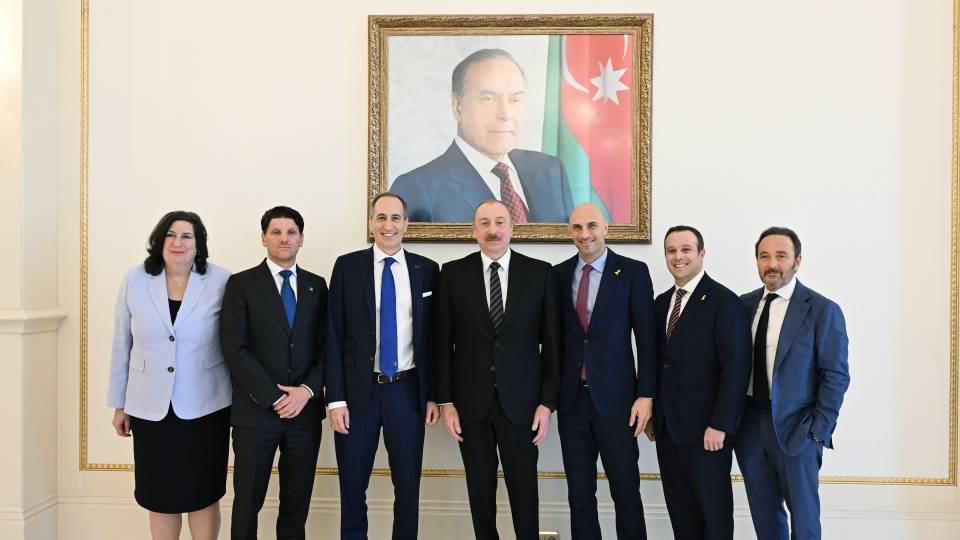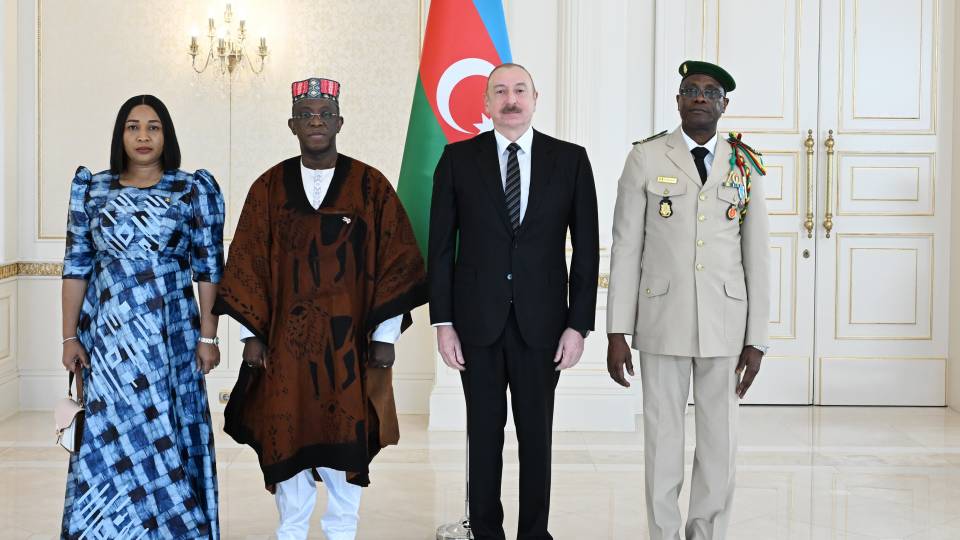15:36
Руководствуясь пунктом 32 статьи 109 Конституции Азербайджанской Республики, постановляю:
Назначить...
03 февраля 2025, 15:36Hurriyet Daily News
Wednesday, January 19, 2011
ELSEVER SALMANOV
When we look at Azerbaijan’s independence process throughout history, one sees that the people of Azerbaijan have sometimes paid very high prices for their independence. These prices were sometimes directly imposed by the great powers, or sometimes by Armenians serving as their pawns at various times throughout history, especially during the last 150 years. According to these Armenians, Azerbaijan should not have been an independent, strong and stable state, but one rife with and struggling with problems, a vassal, feeble and powerless. However, the people of Azerbaijan would not yield to these impositions, thanks to the spirit which their established state tradition gave them.
By the end of the 1980s, it was known to everybody that the Soviet Union would not survive, but collapse due to state policies that were contrary to reality and based on artificial slogans.
That's exactly when the activities of Soviet management against Azerbaijan reached its climax. The fact that Haydar Aliyev, national leader of the people of Azerbaijan, was forced to leave the Soviet management clearly reveals the foregoing.
Armenians, encouraged by the power vacuum in the state and by the fact the Soviets supported them, started widespread activities within Azerbaijan and Armenia for their territorial claims. Of course, the people of Azerbaijan were aware of this process and these ill designs planned against them. Now it was time to come together to deliver the country from these ugly attacks, to unite, to become independent again and to vociferate the will of the people to the world. The venue was Freedom Square (or “Azatlık” Square) in Baku. The date was Jan. 19, 1990.
At 7:27 p.m. on Jan. 19, 1990, special forces from the Soviet Union’s Committee for State Security, or KGB, called "Alpha" destroyed the general power unit of the Azerbaijan State Television Building by bombing it. The press was silenced and no visual broadcasts could be made in the country. On the same date, Mikhail Gorbachev, president of the Soviet Union, issued a decree to declare emergency rule in Baku as of Jan. 20 in violation of Article 119 of the USSR. Constitution and Article 71 of the Azerbaijan SSR. That same evening, special forces invaded Baku, which was unaware of Gorbachev's emergency rule decree, whose legitimacy was debatable, within the framework of an operation jointly planned by the USSR Ministry of Defense, Interior Affairs and State Security Committee. Nine persons were murdered several hours before the effective date of the decree. Yevgeny Primakov, Soviet speaker of parliament, Grienko, secretary of the Central Committee of the USSR Communist Party, and Mihayilov, branch director of the USSR Communist Party, declared to the public that no emergency rule would be declared in Baku. Even the fact that informing the public about the emergency rule decree issued by the president was prevented by itself constitutes evidence that what was done was intentional and premeditated.
Soviet Army special forces entered the capital, Baku, and opened random fire at everyone and in every direction. The tanks were crashing into anything before them and ruining the city, according to the instructions given to them. People were targeted by these randomly fired bullets, while walking on the street, staying at home, in buses or in cars. A humanitarian drama was suffered in Baku on the verge of the 21st century. As a result of the operations by Soviet Army, 134 persons were massacred, more than 600 were wounded and about 800 were arrested. Without a doubt, such inhumane practices implemented in Baku could be evaluated in the same category of the massacres staged in Budapest in 1956, in Almaty in 1986, in Prague in 1968, in Tbilisi in 1989 and in Vilnius in 1991. Thus we see that the Soviet Union was able to survive thanks to massacres and brute force.
Soviet management was defending all that had been done with the explanation, "The purpose of the army's entry into Baku was to protect the bureaucracy and their family members living there." Even documents of Soviet sources prove that the defense was a total lie. That's to say, there were 11,500 SWAT troops of the Ministry of Interior Affairs located in Baku and a significant number of military troops of the Ministry of Defense were present, too. These numbers made it unnecessary to bring back-up forces from outside.
The Azerbaijan SSR public prosecutor initiated an investigation regarding the January massacres. An indictment of 100 volumes was issued. Sixty-nine volumes of this indictment were sent to Moscow upon the request of the USSR public prosecutor. There is still no news of these volumes.
Then the Azerbaijani management was not only unable to utter ideas contrary to the official story regarding these experienced events, but also further act on the requests of the Soviet management by taking into consideration the attitude of Moscow. The later leadership could only make a decision on Jan. 17, 1992 at the High Soviet, which functioned as the lawmaker of Azerbaijan, that Jan. 20 must be remembered as a "Day of Martyrs" every year, due to the instability present throughout the country. Against all odds, Aliyev, despite severing his connection with Soviet management in 1990, risked his life and organized a press conference while in Moscow and severely criticized the Soviet management which staged the Baku massacre. When Aliyev later came to power in the country, an extensive resolution containing the names of those guilty in the January 1990 massacres was adopted in the Azerbaijani National Assembly on March 29, 1994.
Of course the recognition of the January 1990 massacre only by Azerbaijan is not enough. When the event is examined in terms of international law, it would be a good call that the said massacre must be included under the scope of crimes against humanity and those who are responsible must be subjected to investigation. That's because all that was done includes all symptoms of a crime against humanity. We and all our friends must follow up on all inhumane practices and assume it as a life principle to struggle on this path without yielding.
*Elsever Salmanov is the spokesman of the Embassy of the Republic of Azerbaijan in Ankara.
Link to article
Руководствуясь пунктом 32 статьи 109 Конституции Азербайджанской Республики, постановляю:
Назначить...
03 февраля 2025, 15:36Руководствуясь пунктом 32 статьи 109 Конституции Азербайджанской Республики, постановляю:
Освободить Руфата Эйваз оглу...
03 февраля 2025, 15:34В сентябре 2025 года исполняется 140 лет со дня рождения великого азербайджанского композитора, создателя первой оперы на Востоке, выдающегося...
03 февраля 2025, 15:32Руководствуясь пунктом 23 статьи 109 Конституции Азербайджанской Республики, постановляю:
За многолетнюю...
03 февраля 2025, 15:17Президенту Азербайджанской Республики Его превосходительству господину Ильхаму Алиеву
Ваше превосходительство.
В связи с трагическим...
30 января 2025, 15:17Уважаемый господин Президент,
Крайне опечалены известием о гибели большого числа людей в результате столкновения пассажирского самолета с...
30 января 2025, 14:02
Уважаемый Александр Григорьевич,
Сердечно поздравляю Вас с переизбранием на пост Президента Республики Беларусь.
Ваша убедительная победа на...
27 января 2025, 14:30
27 января Президент Азербайджанской Республики Ильхам Алиев позвонил Президенту Республики Беларусь Александру Лукашенко.
Глава государства...
27 января 2025, 12:10